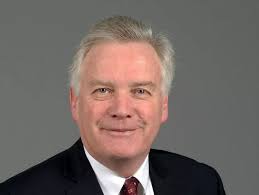Updated 8 July 2022
Interview with Shaye Ganam 630 CHED/ 770 CHQR https://omny.fm/shows/ched-mid-morning/a-sales-tax-for-alberta-why-and-how
Read Ascah’s opinion piece in the Edmonton Journal 8 July 2022.
No this isn’t official..yet… and this isn’t a prediction or April Fool’s Day joke. It’s a book that promises to be a summer blockbuster! Sure, I’m the editor and contributor but there are six other academics, financiers, and journalists who weigh in on this controversial subject.
BUT THERE’S MORE: a foreword from Kevin Taft and Afterword of Trevor Harrison.
The volume is the cumulation of a project begun in the fall of 2018, prior to the last provincial election. The hope is to stimulate a broad discussion of the province’s finances including exploration of a sales tax. The recent improvement in oil prices and the provincial government’s finances provide a wonderful opportunity and breathing space to engineer an escape from provincial finances being hostage to the fortunes of foreign oil markets.
There are Interviews with former Bank of Canada Governor David Dodge, retired finance deputies Robert Bhatia and Al O’Brien, and former Alberta Liberal leader Kevin Taft. These conversations practically inform the narrative on the long-term consequences of Alberta’s fiscal policies.
In Part 1 of the book chapters by Ascah and Thomson frame the history of the sales tax in the context of Alberta’s political and fiscal environment. In the first chapter Ascah canvasses the history of the sales tax in Alberta. Alberta’s fiscal history demonstrates both an strong aversion to taxes as well as an optimistic belief that Alberta’s exceptionalism would effectively pay for

Graham Thomson Source: Grahamthomson.ca
public services. Thomson humorously recounts the sad travails of successive finance ministers who dared to encourage some discussion of a sales tax. Thomson, who has been following this debate for debates has appropriately labelled the tax a provincial sales tax – the “political suicide tax” and to this day politicians get very antsy when journalists bring up the subject.

Chapter 3 discusses long-standing fiscal dilemma- “ how to respond to two contrary expectations on the part of voters: the first that services will expand and the second that taxes will remain low. In other words, how can the Alberta government spend more money without raising more money?” The following chapter builds on the issue of how the fiscal dilemma has been addressed. Since 1965, the province has never run a surplus if non-renewable resource revenue is excluded. The debate has been framed as a question of whether Alberta “has a spending problem,…or a revenue problem.” Ascah concludes Alberta has both a spending and revenue problem.
Part 2 of the book addresses the “why” of implementing a sales tax. Professor Emeritus of economics Melville McMillan notes that implementing a sales tax is an inevitability and provides the province with an opportunity to reconsider the broad questions of how best to deal with volatile resource revenue, including windfalls that Alberta is enjoying currently.

Economics Professor Ergete Ferede from Grant MacEwan studies the volatility of three of Alberta’s most important revenue sources- corporate and personal income taxes compared to a sales tax. Ferede uses different ways to measure volatility and finds that corporate income taxes are from twice to nearly four times more volatile than a sales tax. Personal income taxes are less volatile but are still 1.2 to 1.3 times more volatile than a sales tax.
I

In the following chapter political scientist Elizabeth Smythe examines the case for a sales tax through the lens of growing inequality and environmental sustainability. While acknowledging that a sales tax is regressive, she observes that refundable tax credits can address income inequality.

Part three examines strategies of how to bring in a sales tax. Accountant and former CFO Ian Glassford’s offers one concrete solution to apply a budget decision rule relating the use of a sales tax given Alberta’s notorious volatile resource revenue. This is accomplished by creating a “ disciplined PST” treating the revenues from a new PST as alternatively a savings account and spending account. Depending on economic growth rates the allocation of PST could vary from zero to 150 per cent of its annual intake.

Professor Ken McKenzie (University of Calgary) takes a personal approach telling readers of a conversation with Premier Klein in 2003 after his Canada West Foundation study Replacing the Alberta Personal Income Tax with a Sales Tax: Not Heresy but Good Economic Sense, was published. McKenzie notes that the marginal cost to raise a dollar in corporate income tax is $4.91 cents, $1.41 to raise a dollar in personal income tax compared to $1 for a PST.

In his concluding chapter, Bob Ascah focuses on how to move the province forward to a sustainable fiscal future. In crafting ideas on setting up a government commission to examinee Alberta’s revenue, saving and spending options, he concludes that the institution of a sales tax, while not a panacea, is necessary to remedy public denial of Alberta’s faulty “on-again, off-again” fiscal system. Citing the looming dangers of stranded oil and gas assets and environmental liabilities, Ascah calls for an end to Alberta exceptionalism and for a public discussion about a necessary fiscal transition.
Coming at a pivotal time in Alberta’s political history, the editor (me) understands that leadership campaigns and election campaigns are not necessarily the best time to discuss policy (Kim Campbell, 1993). It will be up to readers, and ultimately the public, to let their views be known on the subject of the whipsaw fiscal policy that Albertans have endured for nearly half a century. It is my hope that this unique and comprehensive review will move the discussion from “why” to “how.”
Who should own the book- (to be placed strategically among books as a Zoom background!)
- Alberta party strategists
- Government relations consultants
- Industry associations and labour organizations
- Alberta professional associations
- Alberta Political Science, Policy Studies, History and Economics- academics and students
- Mayors, reeves, municipal councilors, Alberta MLAs
- School board trustees and superintendents
- Media covering Alberta’s political and economic scene
- Deputy and assistant deputy ministers- Government of Alberta
- Alberta tax accountants and lawyers
- Alberta CEOs and CFOs
Some endorsements
In Alberta’s rich history, no public policy measure has been more mythologized than a sales tax. The province remains the only one in Canada not to have one, despite withering pressure on government revenues. A Sales Tax for Alberta arrives at time when the possibility of such a levy seems more possible than ever, which makes its content more relevant and important than ever. From the political implications of bringing in such a tax to the dire need to end the ceaseless volatility around provincial revenues, this book serves as an all-encompassing guide. More than anything, it is vital reading for anyone looking for an articulate, well-rounded view of this highly combustible issue.
Gary Mason, Globe and Mail
Bob Ascah has done all Albertans a service by putting together this collection on one of our Province’s most pressing issues—whether it is time for a provincial sales tax. A Sales Tax for Alberta makes a compelling case for the necessity of revenue stability which requires us to move away from our dependence on unpredictable natural resource rents. It is time for all of us in this province to have an adult conversation about what a sustainable fiscal future looks like. This book should be required reading for all of us who want to be part of that conversation.
Anne McLellan, P.C. O.C. AOD., former Deputy Prime Minister of Canada
An indispensable read for those of all political stripes contemplating Alberta’s future in a turbulent global economy.
Roger Gibbins, Former President, Canada West Foundation
A Sales Tax for Alberta engages and makes accessible the details that need to inform the fiscal policy debates that must occur surrounding a sales tax. Albertans cannot avoid and should not delay this and need to be informed on the issues. This collection is an excellent place to start and is a great resource for the process that is coming. I commend the authors and editor and recommend this book to all Albertans.
Carman R. McNary, Q.C.
This book helps set the stage for a much-needed dialogue about why a sales tax is needed now more than ever and how such a tax could and should be implemented. Ascah and his contributors write compellingly on this very important topic.
Robert Bhatia, former Alberta Deputy Finance Minister
The contributors to this book explore all the important arguments that can be used to jumpstart a long-overdue discussion on Alberta’s ballooning fiscal deficit. Using his own experience and years of research, with insights from many experts from the top levels of government and academia, Ascah paints a complete picture of the problem and points the way to a solution.
Hilliard MacBeth, author of When the Bubble Bursts
To order the book go to Athabasca University Press
Way to go, Bob!!!!
Timely and sorely needed.
By avoiding this issue we in Alberta have been destroying our souls.
(If you think that is hyperbole, just listen to the whiney tone of voice of many who seek to lead the UCP and many in the UCP.)
If I were dead, I’d be turning min my grave. I am not, so I shall engage in the struggle.
Ruben
Bob,
Many congratulations on bringing this chef d’oeuvre to fruition!
The comprehensive research and policy conclusions advanced by yourself and your contributors are to be highly commended.
Your book can only advance discussions and decisions in the public interest of the province.
I look forward to the resulting public debates.
Bob
Thank you for sticking with the project through the many interviews and revisions to get this book done. I recall my days in Treasury looking at the provincial tax comparisons that us “revenuers” used help put together and being astounded at the consistency of the yield from the sales tax in other provinces in comparison to the wild swings in Alberta’s consumption and income taxes. Now I have something other than anecdote to reinforce my arguments for getting out of boom and bust cycles.